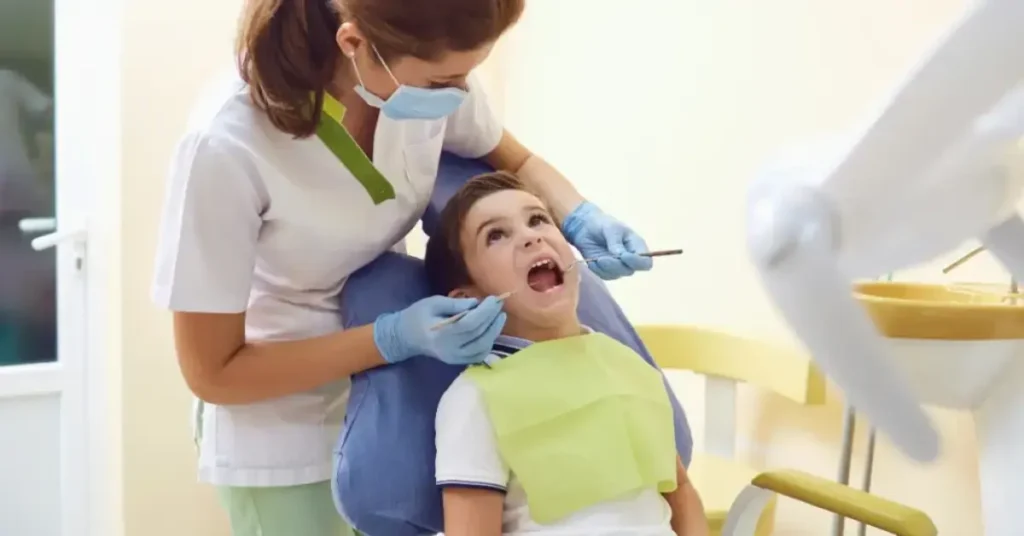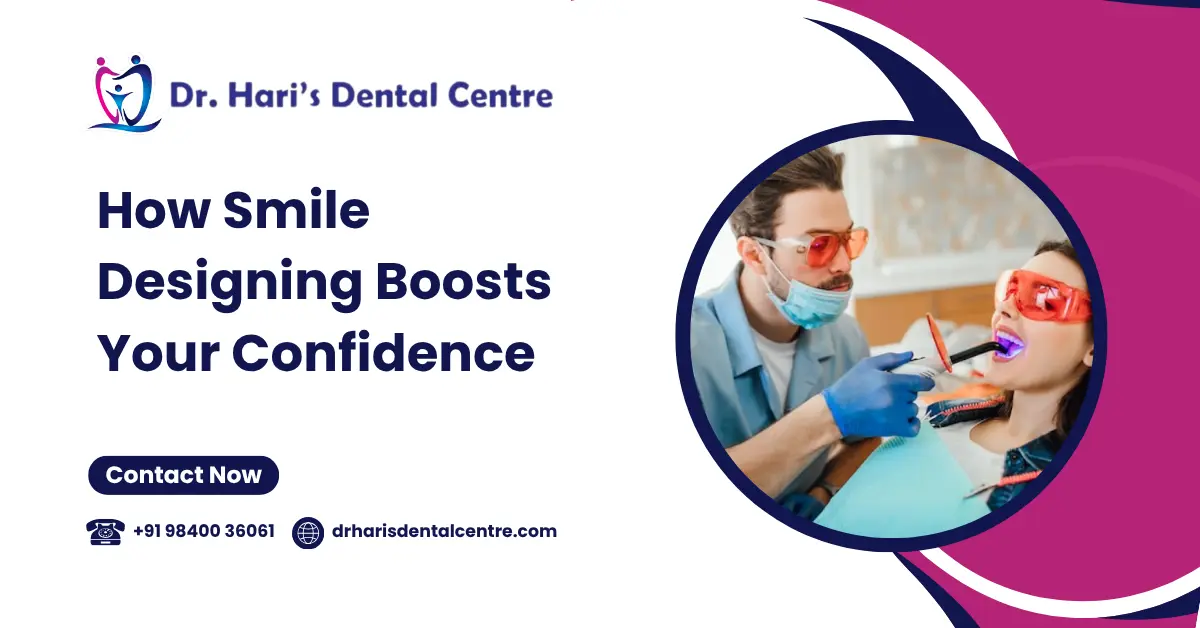Routine dental check-up for adults and kids are vital for maintaining healthy teeth and gums for both adults and children. These visits, typically every six months, help prevent dental issues, detect early signs of oral diseases, and ensure good oral hygiene. For adults, regular check-ups help prevent cavities, gum disease, and oral cancer, while for children, they help establish good oral hygiene habits for life. According to the American Dental Association, regular check-ups can reduce the risk of tooth decay and gum disease by up to 60%. These visits are key to long-term dental health, whether it’s through simple cleaning or a more comprehensive evaluation.
Comprehensive Dental Check-up
A comprehensive dental check-up involves a thorough examination of your mouth, teeth, gums, and surrounding structures. The dentist will check for cavities, gum disease, and other potential issues. For adults, this may include oral cancer screening. For children, the dentist will ensure that their teeth are developing correctly.
- Thorough Examination: The dentist performs a detailed check-up of your teeth, gums, and overall oral health to detect any visible issues such as cavities, gum disease, or infections.
- X-rays for Early Detection: X-rays are used to uncover hidden dental problems such as cavities between teeth, bone loss, and issues with existing fillings, preventing severe complications later.
- Oral Cancer Screening: Routine dental check-ups include oral cancer screenings, which help detect early signs of oral cancer, leading to better treatment outcomes if detected early.
- Gum Health Check: Dentists also monitor the health of your gums, checking for signs of gum disease, which can lead to tooth loss if left untreated.
Preventive Oral Care
Preventive oral care is essential in preventing dental issues before they occur. Routine dental visits include cleanings, fluoride treatments, and advice on maintaining good oral hygiene. For children, this also includes guidance on diet and fluoride use to prevent cavities. For adults, preventive care may involve advice on reducing sugar intake, using fluoride toothpaste, and avoiding harmful habits like smoking.
- Brushing and Flossing Techniques: The dentist can show you the best brushing and flossing techniques to ensure proper cleaning and prevent plaque buildup, which is crucial for avoiding cavities and gum disease.
- Fluoride Treatments: Fluoride strengthens tooth enamel, which helps prevent tooth decay. These treatments are especially beneficial for children whose teeth are still developing.
- Sealant Applications: For children, dental sealants are applied to the molars to protect them from decay by acting as a barrier against food particles and bacteria.
- Dietary Advice: The dentist will guide both adults and children on dietary choices that promote good oral health, reducing sugar intake and encouraging healthy snacks to protect your teeth from decay.
Dental Checks for Adults
Routine dental check-ups are necessary for adults to maintain optimal oral health. These visits usually involve professional cleaning to remove plaque and tartar buildup, which cannot be eliminated by regular brushing. The dentist will also check for cavities, tooth decay, or gum disease. For adults, regular check-ups may also involve oral cancer screenings and monitoring existing dental work.
- Professional Cleaning: Regular cleanings help prevent plaque and tartar buildup, which can lead to gum disease, cavities, and tooth decay, ensuring your teeth stay healthy.
- Oral Cancer Screening: During check-ups, oral cancer screenings are performed, which are essential for early detection, especially for adults with risk factors such as smoking or alcohol use.
- Monitoring Existing Restorations: If you have fillings, crowns, or bridges, the dentist checks their condition to ensure they are still functioning properly and recommend repairs if needed.
- Aging Teeth Care: As you age, your teeth become more vulnerable to decay and damage. Dentists offer advice on maintaining strong teeth, such as using fluoride treatments and modifying your diet.
Pediatric Dental Visits
Pediatric dental visits are essential for monitoring children’s oral development and ensuring their teeth stay healthy. Regular check-ups help prevent cavities, misalignment, and other early dental issues. The dentist will evaluate the child’s teeth and offer advice on brushing, fluoride use, and avoiding habits like thumb-sucking.
- Monitoring Tooth Development: The dentist checks how your child’s teeth are growing and developing, looking for potential issues like crooked teeth or jaw alignment problems that may require orthodontic treatment later.
- Cavity Prevention: Routine visits help prevent cavities by providing fluoride treatments and dental sealants, which protect the teeth from decay, especially in hard-to-reach molars.
- Addressing Thumb-Sucking or Teething Issues: Pediatric dentists address common issues like thumb-sucking or teething discomfort, offering solutions that prevent these habits from negatively impacting tooth alignment.
- Parental Education: Dentists educate parents on how to care for their child’s teeth at home, ensuring that they develop healthy habits like brushing twice a day and visiting the dentist regularly.

Regular Teeth Cleaning
Regular teeth cleaning is essential for maintaining oral health. During these cleanings, the dentist removes plaque and tartar that brushing cannot eliminate. For adults, cleanings help prevent gum disease, while for children, cleanings ensure teeth remain free of cavities and strong.
- Plaque and Tartar Removal: Cleanings remove plaque and tartar buildup, which is important for preventing cavities, gum disease, and bad breath. These are often areas brushing can’t reach effectively.
- Polishing for a Brighter Smile: After cleaning, the dentist polishes your teeth to remove surface stains and leave your teeth smooth, reducing the buildup of plaque in the future.
- Gum Health Maintenance: Regular cleanings are essential for preventing gingivitis, a precursor to periodontal disease. By removing harmful bacteria and plaque, cleanings help maintain gum health.
- Early Detection of Dental Issues: Cleanings provide an opportunity for the dentist to spot early signs of dental problems like cavities, cracks, or issues with dental work before they become more serious.
Conclusion
Routine dental check-ups are critical for maintaining strong, healthy teeth and gums. These visits not only help prevent common dental issues such as cavities and gum disease but also provide an opportunity for early detection of more serious conditions like oral cancer. Regular check-ups are essential for long-term oral health, helping adults and children alike maintain their smiles for years to come. At Dr. Hari’s Dental Centre, we emphasize the importance of regular visits for everyone in your family. Our dedicated team ensures that every visit is comfortable and effective, using the latest technology to provide high-quality dental care tailored to your needs.
Read also: Scaling




